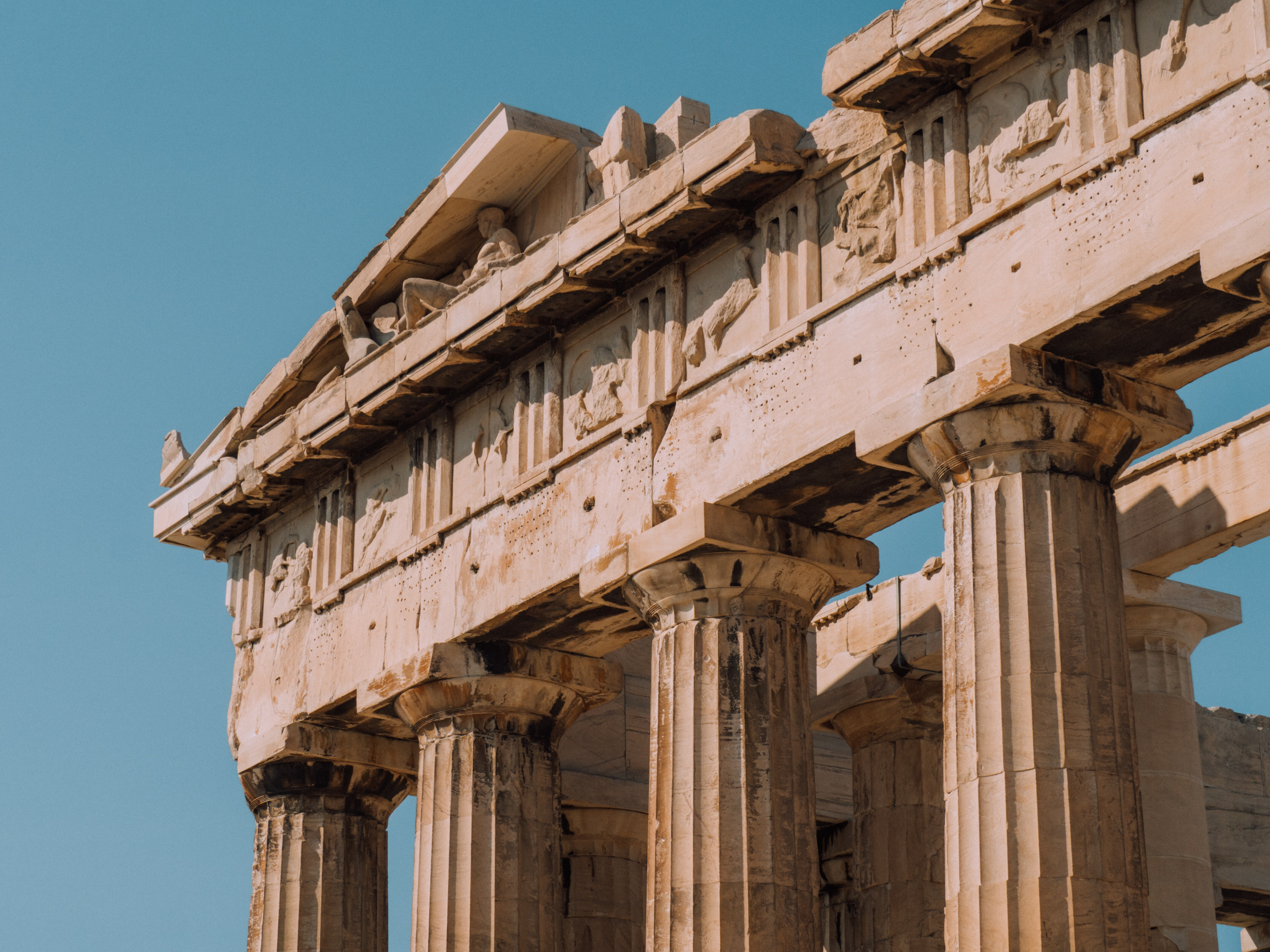Of Generosity, Surrender, and Warm Hot Dog Water
November 9, 2023 | Dave Steenberg

On a narrow strip of land connecting northern and southern Greece, 50 miles west of what was ancient Ephesus, the city of Corinth prospered. Known throughout the Roman empire as a trading capital, archaeologists estimate its mid-first century population was over 200,000 free citizens and 500,000 slaves. The bustling city sponsored philosophical debates, massive markets, and public athletic games second only to the Olympics. It had a thriving network of a dozen pagan temples, including the Temple of Apollo and the Temple of Aphrodite, which sported over 1000 priestesses. In addition to trade, Corinth was also known for decadence. The Romans even coined the term "Corinthianize" to mean immorality and reckless excess. And common to almost all cultures throughout history, the population of Corinth was comprised of both "beggars and kings", with a small group of wealthy elites ruling over a large population of destitute laborers and slaves.
In approximately 50 AD, in this debauched environment of prosperity and poverty, trade and commerce, pagan temple and imperial cult worship, the Apostle Paul founded Corinth's first Christian church. This church likely met in a home at first and grew into a rented dining hall, garden, or, possibly, a palace (Erastus, the city treasurer, was a congregant). Problems with inequality and generosity cropped up early, and they were addressed in Paul’s first surviving letter to the Corinthians. Paul chastised some members for good reason: during their celebration of the Lord’s Supper, the wealthy would eat from their own private stash while the poorer members would go hungry. Imagine going to your small group to share a celebratory dinner, and one couple brings a private chef to prepare a sumptuous 5-star meal exclusively for them while you and everyone else settle for stale saltine crumbs with warm hot dog water.
A related issue also pressed on Paul's heart: the extreme poverty of the church in Jerusalem. We know the area had been struck with multiple famines and ongoing persecution of believers, including the confiscation of their property (Hebrews 10:34). In fact, when he departed Jerusalem, James, Peter, and John urged Paul “to remember the poor” (Galatians 2:10). Paul likewise exhorted the Christ-followers in Corinth to first of all surrender their hearts to the Lord and then to give as generously as their fellow believers in Macedonia:
Now I want you to know, dear brothers and sisters what God in his kindness has done through the churches in Macedonia. They are being tested by many troubles, and they are very poor. But they are also filled with abundant joy, which has overflowed in rich generosity. For I can testify that they gave not only what they could afford, but far more. And they did it of their own free will. They begged us again and again for the privilege of sharing in the gift for the believers in Jerusalem. They even did more than we had hoped, for their first action was to give themselves to the Lord and to us, just as God wanted them to do (2 Corinthians 8:1-5).
Notice the order: first the Macedonians gave themselves to the Lord; giving generously followed that. What does it mean to give yourself first to the Lord? It includes the first step of accepting the death and resurrection of Christ for forgiveness of your sins, for sure. It means being an apprentice of Jesus and obeying the Word of God and the Holy Spirit as a response to His grace, love, and sacrifice. It definitely means God is the King of your life. But I would add that giving oneself first to the Lord is impossible without trust.
It's trusting God to provide. It's trusting God that when he calls you to give of your time, treasure, and talent, He will make a way. So many times in the past, my wife and I have given as we felt led in the Lord, through hardship and plenty. Although sometimes we have felt uneasy and uncertain, He has always faithfully provided. Ultimately, it's trusting God is who He says He is and can do what He promises to do.
It's in that posture of submission and surrender that the Macedonians gave generously, both those with little and those with plenty. In fact, once they gave themselves first to the Lord, Paul states they found it a privilege to give, they begged to give more, and they did so with joy.
Therefore, my dear brothers and sisters, stand firm. Let nothing move you. Always give yourselves fully to the work of the Lord, because you know that your labor in the Lord is not in vain. (1 Corinthians 15:58).
Submission and surrender have negative connotations in our culture. Submission is for losing UFC fighters. Surrender is for captured criminals and defeated armies. But as Christians, we're called to sometimes be at odds with our culture, to stand apart in both our definitions and our practices.
Like communion honors the ultimate act of giving done on the cross, our giving can create a sacred space in our hearts and in the world. We give what we cannot keep because we’ve found what we cannot lose. In God's upside-down kingdom, submission invites freedom, surrender births new life, and giving is sacramental.
© 2026 Venture Christian Church. All rights reserved. Powered by Fishhook

